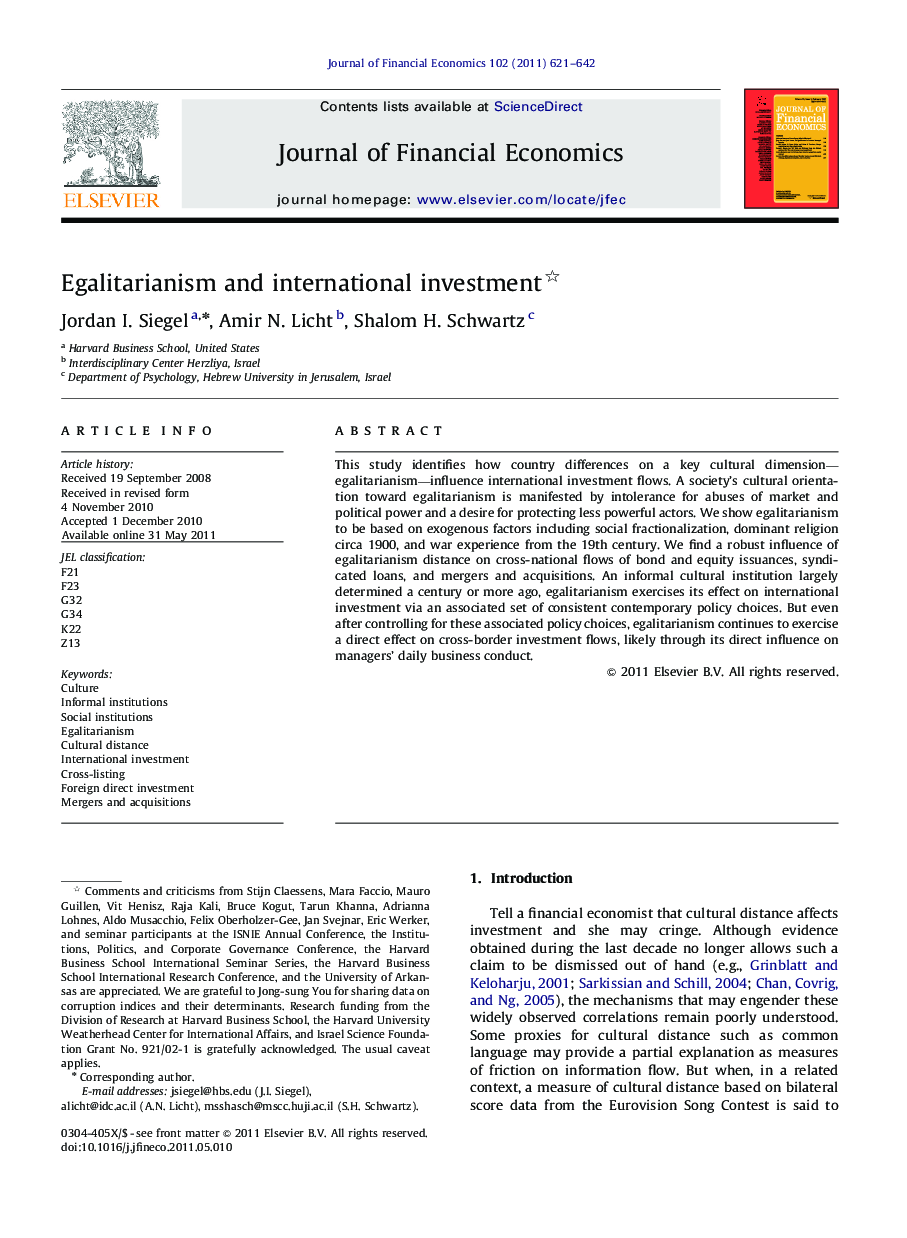| Article ID | Journal | Published Year | Pages | File Type |
|---|---|---|---|---|
| 960365 | Journal of Financial Economics | 2011 | 22 Pages |
This study identifies how country differences on a key cultural dimension—egalitarianism—influence international investment flows. A society's cultural orientation toward egalitarianism is manifested by intolerance for abuses of market and political power and a desire for protecting less powerful actors. We show egalitarianism to be based on exogenous factors including social fractionalization, dominant religion circa 1900, and war experience from the 19th century. We find a robust influence of egalitarianism distance on cross-national flows of bond and equity issuances, syndicated loans, and mergers and acquisitions. An informal cultural institution largely determined a century or more ago, egalitarianism exercises its effect on international investment via an associated set of consistent contemporary policy choices. But even after controlling for these associated policy choices, egalitarianism continues to exercise a direct effect on cross-border investment flows, likely through its direct influence on managers' daily business conduct.
► We identify the relations between cultural egalitarianism and international investment flows. ► Egalitarianism is manifested by intolerance for abuses of power and protections for weaker actors. ► Social fractionalization, past dominant religion, and 19th C. war experience serve as instruments. ► Egalitarianism distance negatively affects flows of bonds, equities, syndicated loans, and M&A. ► Egalitarianism affects international investment via consistent contemporary policy outcomes.
